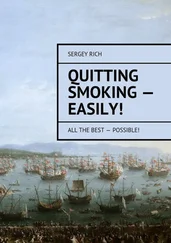And you can’t think why he chose to see you here: at a concrete theatre complex with an equally concrete café and this concrete square baking airlessly in front where there is no one — no one but this man and you. The other exterior tables and wiser diners and unadjusted chairs are over by the building. They nestle in its shadows, are thickest towards the angle where two wings meet. Ninety degrees again.
Four ninety degrees, to be technical. You’re in a square — it’s square.
Perhaps he has a thing for corners.
Or else he likes display. You do feel that you have been forced to become one half of an event. Inside the café, people are eating ahead of a matinee, grabbing a coffee, studying their programmes, chatting in a manner that suggests they have made good choices in life and are about to savour something enriching and not to just anyone’s taste. Outside, there’s you and this man and what amounts to an audience. Every now and then someone lifts their head in the shade, stops talking, glances over and sees — this couple meeting, this couple having lunch, this man telling this woman a story.
Only he’s not.
He isn’t really saying anything.
He began with the stutter and falter of, ‘Sorry. Excuse me. I’ll just. . Ah. Well. Hang on.’ And there was the minor chaos you guess that he always draws up and around him: the furniture moving and the scamper back and forth as he fetched superfluous napkins, another spoon, the glass for your apple juice, a glass of ice for the glass for your apple juice, some pepper in a handful of sachets which remain untouched. Then he sat, swallowed audibly and began, running off through longer and longer sentences, looping them forward while he showed you the flinch of his hands, the over-vigorous illustration of salient and mildly amusing points. All his details blur and fade, though, and he reaches no conclusions. He tangles and frequently breaks his own thread, and you feel that his general rush of words amounts to a hedge, a fence, energetic smoke. They are the cover that he ducks behind.
He was the one who asked to meet you, but he’s now in hiding. He is even crouching to a tiny degree, shoulders tensed, as he tells you the first coat he bought that was properly expensive had actually been a knock-off with fraudulent seams that unravelled and he’d also bought a second-hand stove that harboured almost fatal electrical flaws. You haven’t expressed any interest in fashion, or stoves, or very unwise decisions. Before this, he half-finished an anecdote about cats which seemed intended to be funny, but wasn’t. Perhaps if he’d made it to the end.
His being so far away and yet here makes you lonely.
You stare at your lasagne, which is ugly and has congealing historical layers, like a starchy lump of cliff — not something you can eat.
There’s a plate of allegedly Moroccan casserole in front of him. It hasn’t been attempted.
This isn’t having lunch with him, this is visiting lunch with him.
You should have brought your own food to ignore — bad cheese and wet pickle, nasty bread — it would have been cheaper.
‘ I hate pickle.’
‘Well, I didn’t know that.’
‘Well, I’ve been telling you for thirty-seven years.’
Start as you’d rather not have to continue.
You remember arriving early — the more important the occasion, the earlier you’ll be — and then having to wander, wait, lean against the warmed bulk of the embankment wall.
It felt good, reliable, relaxing.
Not like this.
You’d looked down at the retreated tide and the narrow drifts of dirty sand it had abandoned. They made you think this lets it seem that somewhere underneath the grey and the burden of straight edges, unnatural angles, London could still be a living thing and might simply shrug one random morning and crack its surfaces and let fundamental elements — sand, rock, water — run loose .
Which might just have been something to consider rather than considering this man and your imminent meeting, or it might have been caused by the slowed and silvered air and the city being briefly turned to silhouettes, lacework and bright prospects. There was a sweetness when you breathed, as if leaves were waking somewhere out of sight.
You were happy. Unmistakably.
You didn’t quite believe that you were happy because of him, but could have been persuaded.
Then he arrived — quick and with a slight flail in his limbs, a vaguely tangential approach — and his nervousness made you nervous, as if he had identified a threat you couldn’t place.
They’re worse now, your nerves, because you are so firmly by yourself. Still, he would do you no harm. You can tell. This is rare in men, in people, and is therefore attractive and it makes you miss him.
You allow yourself — I miss him.
And you watch the side of his face as he laments the failures of professional carers, and dentists in particular. His own glass of apple juice is raised, but he does no more than peer at it for an instant and put it down again, being unable to either halt or drink.
Apart from your bottle of apple juice, you’ve got water and a pot of tea. You have to suppose you expected to be thirsty. And then there’s the glass of melting ice.
You’re not thirsty.
You pour out some juice and add ice, cube by cube, so slowly that it hurts your fingertips.
It may be that you miss him less and are at the edge of being bored.
You pour out some tea, add ice to that.
He forgot to bring milk and so did you. No way you’re going to mention it now and send him haring off again. You’ll have your tea iced and wish for lemon, but not ask for that either.
You’re not exactly listening any more.
His throat, his neck — you want to touch them with the chill of your fingers, find out if they’re as soft and private as they seem, as delicate. The sudden necessity of this prickles in your hands, it nags, and you’re no longer bored. It could be that you’re irritated. You don’t know.
Then his knee — dunt — politely — dunt — rests for a breath against yours — dunt — withdraws — dunt — returns and stays, grazes up and then down and then stays with a pressure which is nearly an absence and therefore aches.
He is — still talking, still focused beyond your right shoulder — with you.
You do not move.
You are — the concrete around you visibly in tiny motion, every surface changing beneath the heat — with him.
He is with you.
You are with him.
At least, this could be the case.
He is describing his mother — his mother up a set of steps and being scared to change a light bulb — that reaching up, angled head and unsteady hands, lifted eyes, the risk of a fall in return for illumination. He makes it real. He takes away his knee. Whatever he’s recalling makes him sad and his eyes, when they find yours, are fast and open and right here and have a shine of pain in them and a deeper intention you can’t grasp before it goes.
And now it’s all silent.
Miles off, years off, it could be that you can hear other voices, meaningless voices, and the stir of the city, an aircraft hanging in the distance — this doesn’t matter.
The silence continues.
You have no idea what to do.
He nods. He sips his apple juice. His eyes become ordinary and cautious before they refocus beyond you. Softly, he describes a trip to Dublin and you reach your fingers as far as his arm and you touch it, when you hadn’t anticipated that you would. To be accurate, you don’t notice that you’ve moved until the cloth of his jacket is warm against you, those one-two-three-four-and-the-thumb little areas of you. At the same time, you realise you’re not being comforting because you’re too late. Your gesture will seem like an unwilling afterthought. He sort of turned to you, tried you, was possibly upset, possibly about his mother, and you’ve demonstrated how you won’t support him, won’t help until he doesn’t need it.
Читать дальше












